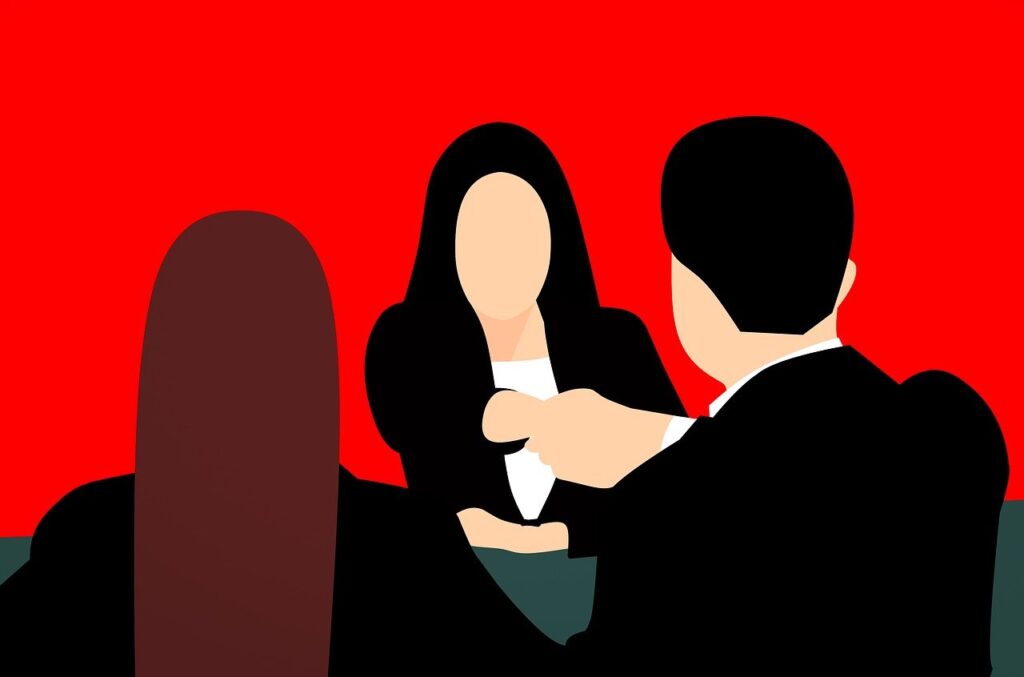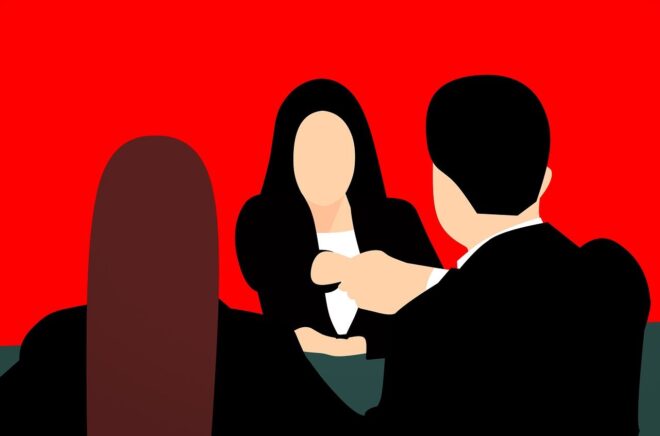Congratulations on landing a job interview! Now that you have this exciting opportunity, it’s essential to be well-prepared to make a lasting impression. In this article, we will outline some practical tips and strategies that will help you confidently navigate the labyrinth of a job interview. From researching the company and practicing your responses to dressing appropriately and maintaining a positive mindset, you will find all the guidance you need to boost your chances of success. So, let’s dive in and discover how you can best prepare for that upcoming job interview!

Research the Company
Learn about the company’s mission and values
Before your job interview, it’s important to familiarize yourself with the company’s mission and values. This will help you understand the organization’s overall goals and the principles they adhere to. Take some time to visit the company’s website and read their mission statement. Look for any information about their core values and the ways in which they strive to make a positive impact. Understanding the company’s mission and values will not only impress the interviewer, but it will also help you determine if the company is a good fit for your own personal and professional aspirations.
Research the company culture
In addition to understanding the company’s mission and values, it’s essential to research the company culture. Company culture refers to the shared beliefs, attitudes, and behaviors that exist within an organization. This includes factors such as the work environment, communication styles, and employee satisfaction. By researching the company culture, you can gain insights into what it might be like to work there. Look for articles, blog posts, or employee testimonials that shed light on the company’s culture. This information can be valuable during your interview as it allows you to speak to your compatibility with the company’s values and work environment.
Understand the company’s products or services
Another crucial aspect of preparing for a job interview is to thoroughly understand the company’s products or services. Take the time to research the specific offerings of the company, as this knowledge will demonstrate your genuine interest and enthusiasm for the role. Familiarize yourself with their product line, service offerings, or any upcoming projects. By understanding what the company does, you’ll be better equipped to answer questions related to their products or services, and you’ll also be able to speak intelligently about how your skills and experiences align with their specific industry.
Explore the company’s recent news and achievements
Staying up-to-date with the company’s recent news and achievements demonstrates your enthusiasm and dedication to the role. Browse through recent press releases, news articles, or social media posts to gather information about any notable accomplishments or milestones the company has achieved. This could include awards they’ve received, new product launches, or successful partnerships. By mentioning specific achievements during your interview, you show that you’ve taken the time to familiarize yourself with the company’s recent activities. This attention to detail will make a positive impression on your interviewer and show that you are genuinely interested in the company and its success.
Analyze the Job Description
Familiarize yourself with the job requirements
One of the most critical aspects of preparing for a job interview is to thoroughly analyze the job description. Take the time to read the job requirements carefully. This will help you understand the specific skills, qualifications, and experience the employer is looking for in a candidate. Go through each requirement and assess how your own skills and experiences align with them. This will allow you to highlight your relevant abilities during the interview and demonstrate that you are well-suited for the position.
Identify the key skills and qualifications
While analyzing the job description, it’s essential to identify the key skills and qualifications sought by the employer. Look for phrases or keywords that are repeatedly mentioned or emphasized throughout the description. These are likely the qualities that the employer values most and considers essential for success in the role. Make note of these key skills and qualifications and be prepared to talk about how you possess them or have developed them throughout your career. This will enable you to tailor your responses to highlight these specific attributes during the interview.
Research common interview questions for similar roles
As you prepare for your job interview, it can be helpful to research common interview questions for similar roles. This will give you an idea of the types of questions that may be asked during the interview and allow you to prepare thoughtful and concise answers. Look for interview guides or resources specific to your industry or job title. These resources often provide a list of commonly asked questions and offer tips on how to approach each one. By familiarizing yourself with these questions and practicing your responses, you’ll feel more confident and prepared on the day of the interview.

Prepare Your Responses
Practice common interview questions
One of the most effective ways to prepare for a job interview is to practice common interview questions. Although you cannot predict exactly which questions will be asked, practicing common interview questions will help you develop a clear and confident communication style. It will also allow you to think on your feet and provide well-thought-out responses. Create a list of common interview questions and practice answering them out loud. Consider recording yourself or practicing with a friend or family member to receive feedback and refine your responses. Rehearsing your answers will help you feel more comfortable during the actual interview and ensure that you convey your qualifications effectively.
Highlight your relevant skills and experiences
As you prepare for your job interview, it’s important to highlight your relevant skills and experiences. Review the job requirements and identify specific examples from your past professional experiences that demonstrate your proficiency in these areas. Whether it’s through internships, previous job roles, or extracurricular activities, be prepared to discuss how your skills and experiences make you a strong fit for the position. By emphasizing the relevance of your background, you create a strong case for why you are the ideal candidate for the role.
Craft concise and impactful answers
During a job interview, time can be limited, so it’s essential to craft concise and impactful answers to the questions you’re asked. Practice summarizing your experiences and qualifications in a few sentences, focusing on the most relevant details. Use specific examples to illustrate your points and highlight your achievements. By delivering concise and impactful answers, you demonstrate your ability to communicate effectively and thoughtfully. This will help you make a positive impression on the interviewer and enhance your chances of advancing in the hiring process.
Prepare examples of past accomplishments
When preparing for a job interview, it’s beneficial to have examples of past accomplishments at hand. Think about specific projects, initiatives, or challenges you’ve faced and overcome in your previous roles. These examples can showcase your problem-solving abilities, leadership skills, or your capacity to work effectively in a team. Be prepared to discuss the details of these accomplishments, including the challenges you encountered, the actions you took, and the outcomes you achieved. Providing concrete examples of your past successes will make your answers more compelling and memorable to the interviewer.
Anticipate behavioral and situational interview questions
In addition to practicing common interview questions, it’s crucial to anticipate and prepare for behavioral and situational interview questions. These types of questions require you to provide specific examples from your past experiences to demonstrate your abilities and decision-making skills. Consider the core competencies and qualities required for the role and brainstorm examples that showcase your proficiency in each area. Be sure to provide context, explain your thought process, and discuss the outcomes of these situations. Anticipating and preparing for these types of questions will help you deliver well-rounded and thoughtful responses during the interview.
Dress Professionally
Research the company’s dress code
To make a positive first impression during a job interview, it’s important to dress professionally. Take the time to research the company’s dress code to ensure that you adhere to their expectations. Some companies have a formal dress code, requiring candidates to wear a suit or business attire. Others may have a more casual dress code, allowing for a slightly more relaxed outfit. By dressing appropriately, you demonstrate respect for the company’s culture and show that you are serious about the position.
Choose appropriate attire
When selecting your interview outfit, choose appropriate attire that aligns with the company’s dress code. Opt for professional clothing that is clean, well-maintained, and fits you properly. For a formal dress code, consider a tailored suit or a conservative dress with coordinating accessories. If the dress code is more casual, choose polished and well-put-together attire, such as dress pants or a skirt with a button-down shirt or blouse. Pay attention to the details, ensuring that your clothes are ironed, shoes are polished, and accessories are tasteful and minimal.
Ensure clean and well-fitted clothing
Clean and well-fitted clothing is crucial for making a polished and professional impression. Take the time to clean and press your interview outfit before the big day. Wrinkled clothes can give a sense of disorganization and neglect, which is not the impression you want to convey. Additionally, ensure that your clothes are properly fitted. Wearing clothes that are too tight or too loose can be distracting and may give the impression of carelessness. By ensuring clean and well-fitted clothing, you present yourself as someone who takes pride in their appearance and pays attention to detail.
Pay attention to grooming and hygiene
In addition to your clothing, paying attention to grooming and hygiene is essential for a job interview. Make sure you shower, clean your hair, and style it neatly. Maintain well-groomed facial hair or shave if necessary. Pay attention to your nails and ensure they are clean and neatly trimmed. Brush your teeth and use mouthwash to ensure fresh breath. Avoid excessive perfume or cologne, as strong scents can be distracting or overpowering. Looking and smelling clean and well-groomed will leave a positive impression on the interviewer and show that you take the interview seriously.

Gather Relevant Documents
Prepare multiple copies of your resume
Before your job interview, it’s crucial to prepare multiple copies of your resume. Bring at least two to three printed copies with you to the interview. This ensures that you have extra copies in case there are multiple interviewers or if the interviewer requests additional copies. Print your resume on quality paper and make sure it is up to date with your most recent experiences and qualifications. Having multiple copies of your resume readily available shows that you are well-prepared and organized.
Organize any supporting documents or portfolios
Depending on the nature of the role you are applying for, it may be beneficial to organize any supporting documents or portfolios. If you have examples of your work, such as design projects, writing samples, or marketing campaigns, compile them in a professional portfolio and bring it with you to the interview. Ensure that each item is labeled and organized in a logical manner, making it easy for the interviewer to review and discuss your work. By showcasing your supporting documents or portfolios, you can provide tangible evidence of your skills and accomplishments.
Include a list of references if required
Some employers may request a list of references during the interview process. Take the time to prepare a list of professional references who can speak to your abilities and work ethic. Choose individuals who have worked closely with you and can provide a positive and accurate assessment of your skills and character. Include their name, job title, contact information, and a brief description of your working relationship. Having a list of references ready demonstrates your preparedness and willingness to provide additional information if needed.
Practice Good Body Language
Maintain eye contact
During your job interview, it’s important to maintain eye contact with the interviewer. Eye contact helps establish a connection and shows that you are engaged and interested in the conversation. Avoid staring or looking away for extended periods. Instead, focus on maintaining natural and comfortable eye contact, alternating your gaze between the interviewer and any visual aids or materials they may provide. By maintaining eye contact, you demonstrate confidence and active participation in the interview.
Practice a firm handshake
A firm handshake can make a strong first impression and convey your confidence and professionalism. Practice your handshake technique before your job interview to ensure that it is neither too limp nor too firm. Extend your hand with a loose grip, making sure to maintain eye contact and offering a brief smile. Aim for a balanced and respectful pressure, matching the strength of the other person’s handshake. A firm handshake sets a positive tone for the interview and leaves a lasting impression.
Sit up straight and avoid slouching
Your body posture during a job interview is a non-verbal cue that can communicate your level of confidence and interest. Sit up straight, maintaining good posture throughout the interview. Avoid slouching or leaning back in your chair, as this can give the impression of disinterest or laziness. Instead, sit comfortably with your back straight, shoulders relaxed, and feet planted firmly on the ground. By maintaining good posture, you project an image of professionalism and attentiveness.
Smile and appear engaged
A genuine smile goes a long way in creating a positive and friendly atmosphere during a job interview. Smile warmly when greeting the interviewer and throughout the conversation, when appropriate. Smiling can help establish rapport and demonstrate your enthusiasm for the opportunity. In addition to smiling, appear engaged by actively listening and displaying interest in the conversation. Nodding, using facial expressions, and providing appropriate verbal cues can show that you are actively participating in the interview and genuinely interested in the role.
Control your body movements and gestures
During a job interview, it’s important to control your body movements and gestures to avoid distractions or misinterpretations. While some hand gestures can be effective in emphasizing your points, excessive or nervous movements can be distracting. Be mindful of your gestures and ensure they are purposeful and controlled. Avoid fidgeting, such as tapping your feet or playing with objects, as this can give the impression of nervousness. By maintaining controlled body movements and gestures, you project confidence and professionalism.

Plan Your Route and Timing
Research the interview location
To avoid any last-minute mishaps, it’s important to research the interview location beforehand. Look up the address and familiarize yourself with the area. If possible, consider visiting the location beforehand to get a sense of the surroundings and any potential parking options. Identify the building or office where the interview will take place to avoid any confusion on the day of the interview. Knowing the interview location in advance will help reduce stress and ensure that you arrive on time.
Plan your travel route and transportation
Once you know the interview location, plan your travel route and decide on the mode of transportation. Consider the distance, traffic patterns, and any potential delays that may arise during your journey. If you are driving, use navigation apps or websites to estimate travel times and plan for rush hour traffic. If you are using public transportation, check the schedules and plan your route accordingly. By planning your travel route and transportation in advance, you can minimize the risk of being late or feeling rushed.
Consider traffic and potential delays
Traffic and unexpected delays can significantly impact your arrival time for a job interview. Take these factors into account when planning your route and timing. Check traffic reports or use navigation apps to identify any known congestion areas or road closures along your route. Plan to leave early to allow for any unexpected delays, such as accidents or roadwork. By factoring in potential traffic and delays, you can ensure that you arrive at your interview location promptly and stress-free.
Leave early to arrive on time
To ensure a smooth and stress-free experience, it’s crucial to leave early on the day of your job interview. Aim to arrive at the interview location at least 10 to 15 minutes before the scheduled time. Leaving early allows for any unforeseen circumstances that may arise during your commute. It also gives you the opportunity to calm your nerves, use the restroom if needed, and mentally prepare yourself before the interview. Arriving early shows your punctuality and professionalism, and it gives you a chance to make a positive impression before the interview even begins.
Account for time to complete any pre-interview activities
Arriving early not only allows you to make a positive impression but also gives you time to complete any pre-interview activities. This may include completing any paperwork, filling out forms, or participating in any pre-interview assessments. By accounting for these pre-interview activities, you ensure that you have enough time to complete them without feeling rushed or stressed. Arriving early and being prepared for any pre-interview activities demonstrates your organizational skills and your commitment to the interview process.
Prepare Questions to Ask
Research questions to ask the interviewer
Preparing insightful questions to ask the interviewer showcases your interest and engagement in the position and the company. Take the time to research and brainstorm questions that are specific to the role, department, or company. Consider questions that will help you gain a deeper understanding of the company’s culture, team dynamics, or future plans. This will not only show your genuine interest but also enable you to make an informed decision about whether the job is the right fit for you.
Craft thoughtful and relevant questions
Crafting thoughtful and relevant questions demonstrates your preparedness and attention to detail. Focus on asking questions that go beyond basic facts or information that can be easily found on the company’s website. Instead, ask questions that show you have done your research and have a genuine interest in the company and the role. For example, you could ask about the company’s approach to employee development or advancement opportunities within the organization. By asking thoughtful and relevant questions, you contribute to a meaningful and engaging conversation with the interviewer.
Inquire about the company culture, team dynamics, and future plans
When preparing questions to ask the interviewer, consider inquiring about the company culture, team dynamics, and future plans. These areas can provide valuable insights into the work environment and the potential for growth within the company. For example, you could ask about the company’s approach to work-life balance, the collaborative nature of the team, or any upcoming projects or initiatives. By asking about these aspects, you not only demonstrate your interest but also gather information that will help you determine if the company is aligned with your own values and goals.

Follow-Up Plan
Thank the interviewer for their time
After your job interview, it’s important to express your gratitude to the interviewer for their time. Within the interview, be sure to thank the interviewer for the opportunity to discuss the role and your qualifications. This shows professionalism and appreciation for their consideration. Remember to maintain a positive and genuine tone throughout the interaction.
Send a personalized thank-you email or note
Following the interview, it is customary to send a personalized thank-you email or note. This allows you to reiterate your appreciation for the time the interviewer spent with you and reflect on the conversation. Use this opportunity to mention key points from the interview and express your continued interest in the position. Personalize the email or note by referring to specific aspects of the interview that stood out to you or any unique topics of discussion. A well-crafted thank-you email or note helps you stand out from other candidates and maintains a positive impression with the interviewer.
Express your continued interest in the position
In your thank-you email or note, it’s important to express your continued interest in the position. Reinforce your enthusiasm for the role and the company, and communicate your desire to move forward in the hiring process. This reiteration of your interest shows dedication and commitment to the opportunity. Avoid being overly repetitive, but ensure that your thank-you email or note conveys your eagerness to proceed to the next steps.
Follow up within 24-48 hours
Timing is crucial when it comes to sending a thank-you email or note. Aim to send your follow-up message within 24-48 hours after the interview. This timeframe allows you to remain fresh in the interviewer’s mind and demonstrates your promptness and attention to detail. Delaying the follow-up communication may give the impression of disinterest or lack of urgency. By sending your thank-you email or note in a timely manner, you show that the interview left a positive impact on you and emphasize your professionalism.
Ask about the next steps in the hiring process
In your thank-you email or note, it is appropriate to inquire about the next steps in the hiring process. This shows your ongoing engagement and desire to move forward. Ask if there will be any additional interviews, assessments, or any specific timeframes for decision-making. By asking about the next steps, you demonstrate your proactive approach and your investment in the potential opportunity.
Additional Tips and Considerations
Research the interviewer(s) on professional networking platforms
In addition to researching the company, consider researching the interviewer(s) on professional networking platforms such as LinkedIn. This can provide you with valuable insights into their background, experience, and professional interests. It also allows you to find potential points of connection or shared interests to discuss during the interview. While it may be tempting to delve deep into the interviewer’s personal life, remember to maintain professionalism and focus on their professional background.
Prepare for different interview formats (in-person, phone, video)
In today’s digital age, job interviews can take various formats, including in-person, phone, or video. It’s important to prepare for each of these formats to ensure a smooth and successful interview. For in-person interviews, review the information in this article and focus on engaging in the conversation with the interviewer. For phone interviews, find a quiet and distraction-free space to ensure clear communication. Having a copy of your resume and notes handy can also be helpful during phone interviews. For video interviews, test your technology in advance, ensure proper lighting and a professional background, and dress as you would for an in-person interview. Practice speaking clearly and maintaining eye contact with the camera.
Bring a notepad and pen to jot down important information
During the interview, it’s beneficial to bring a notepad and pen to jot down important information. This can include key details about the role, specific questions you want to ask, or any noteworthy comments made by the interviewer. Taking notes shows that you are engaged and interested in the conversation. It also allows you to refer back to your notes when writing your thank-you email or note. Be mindful not to rely too heavily on your notes during the interview, as maintaining eye contact and active listening should remain your priority.
Avoid negative comments about past employers or experiences
While it’s important to be honest during a job interview, it’s equally crucial to avoid making negative comments about past employers or experiences. Keep the focus on the positive aspects of your previous roles and frame any challenges as learning opportunities. Speaking negatively about past employers or experiences can raise red flags for the interviewer and may give the impression that you are not a team player or easily dissatisfied. Stay professional and highlight the lessons you’ve learned and the skills you’ve gained from any challenges you’ve faced.
Stay positive and enthusiastic throughout the interview
Throughout the job interview, it’s important to maintain a positive and enthusiastic demeanor. Show genuine enthusiasm for the role and the opportunity to work for the company. Emphasize your interest, ask engaging questions, and use positive language when discussing your qualifications and experiences. A positive and enthusiastic attitude leaves a lasting impression on the interviewer and shows that you are genuinely excited about the potential opportunity. Remember to showcase your personality and let your passion shine through your responses.
Preparing for a job interview can be a daunting task, but with proper research, thoughtful preparation, and attention to detail, you can set yourself up for success. By researching the company, analyzing the job description, practicing your responses, dressing professionally, gathering relevant documents, practicing good body language, planning your route and timing, preparing questions to ask, following up, and considering additional tips and considerations, you can approach your job interview with confidence and make a positive impression on the interviewer. Good luck!



